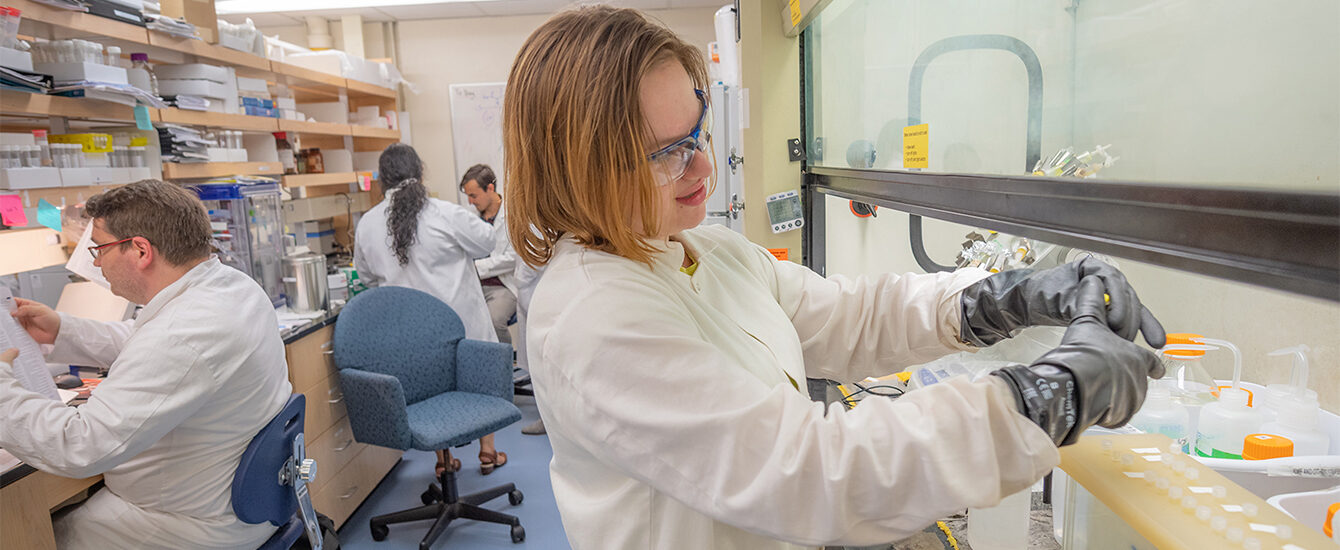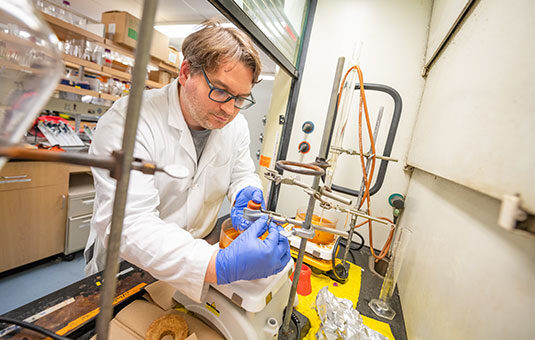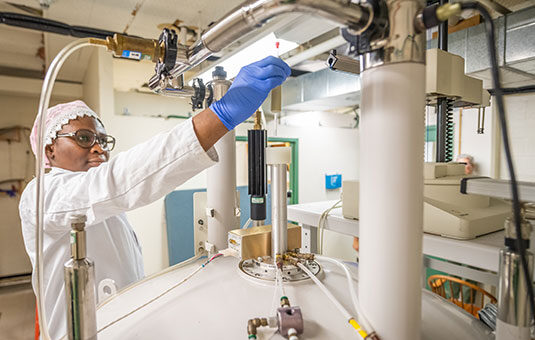Why apply to Clark’s doctoral program in biochemistry?
The intimate size of the biochemistry doctoral program in the Gustaf H. Carlson School of Chemistry and Biochemistry at Clark University provides students with a wealth of opportunities, including the option to engage in research with faculty from day one.
Drawing upon extensive state-of-the-art facilities, equipment, and resources, students may conduct research addressing some of today’s most important challenges in areas including protein structure and function, chemical biology and catalysis, and organic and medicinal chemistry.
Graduate students receive full tuition remission for five years, a stipend from teaching assistantships, and when available, research assistantships.
Our program combines faculty expertise and broad research infrastructure with a supportive environment where students receive mentoring in research and preparation for rewarding careers.
Our Community
The biochemistry doctoral program invites independent, academically driven students to join our diverse and supportive community of scholars and life-long learners. Collaboration — between faculty, research scientists, fellow graduate students, undergraduates, and our interdisciplinary research partners in the STEM fields — is at the core of our program.
Our academic environment fosters a sense of community and shared purpose among our students, research staff and faculty. Notably, our Central Massachusetts location allows students easy access to the local biotechnology and scientific community, a booming industry within the commonwealth.
A Growing Alumni Network
Centered amid Massachusetts’ flourishing biotechnology and biopharmaceutical industries, Clark’s biochemistry Ph.D. program prepares graduate students for rewarding careers.
During the program, students receive teaching and mentoring experience through assistantships and lab work with faculty, graduate, and undergraduate students. This training, coupled with instruction on scientific writing and communication and partnership opportunities with Worcester’s growing biotech community, makes students attractive job candidates.
Alumni have gone on to work at the following:
- Academic faculty: Xi’an University, Union College, Paul Smith’s College
- Post-doctoral fellowships: UPenn Medical School, Peking University, Yale University
- Industry: Bristol-Myers Squibb, PCI Synthesis, Novartis



